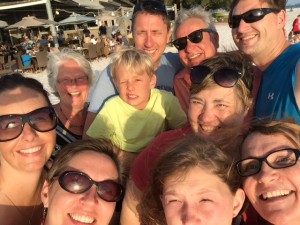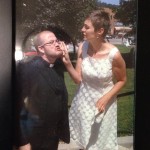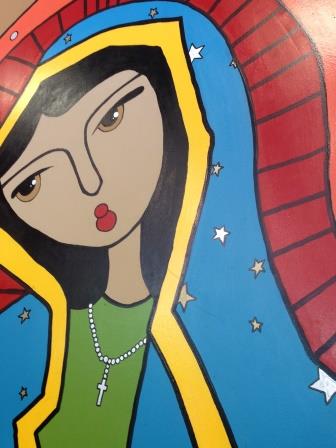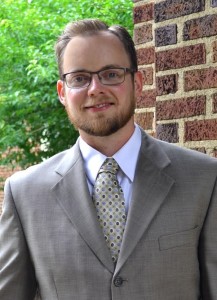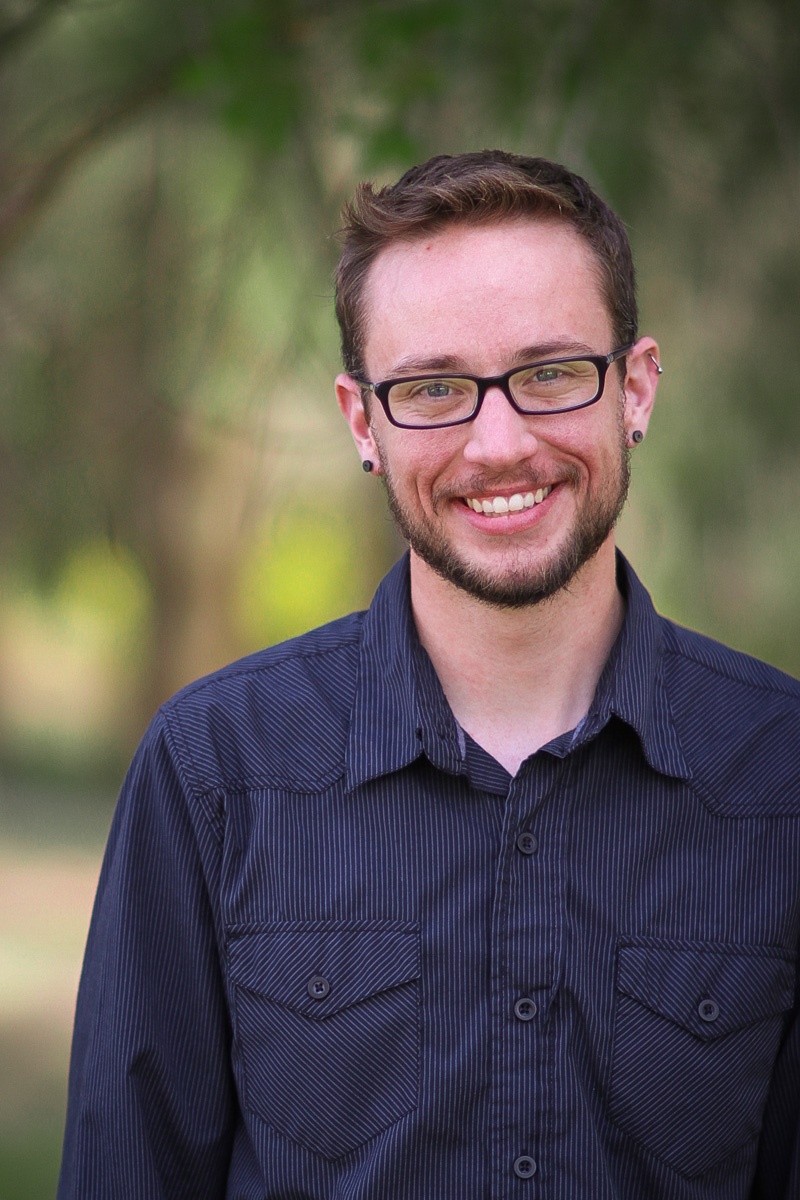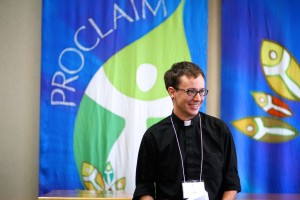Guest blog by Malina Keaton, member of ELM’s Ministry Engagement Team
ELM’s Ministry Engagement program connects congregations allied with ELM’s mission. Team member Malina Keaton has recently been interviewing some of these congregations to find out what makes them so, well, extraordinary! We hope their stories will inspire you. This week we turn to St Luke’s Lutheran Church of Logan Square in Chicago.
Catherine Swanson was looking for a church home for her wife and children in Chicago, Illinois. After attending numerous services of congregations in the area without luck, they happened upon St. Luke’s Lutheran Church in Logan Square and kept coming back. Growing up in a conservative church in Iowa, Catherine searched for local Reconciling in Christ congregations in hopes that she could find a place of welcome for her and her family. “We were entering this space that has been historically unsafe for us in our lives, but every time we entered the doors [at St. Luke’s] we were treated like everyone else. We didn’t feel like we shouldn’t be there.”
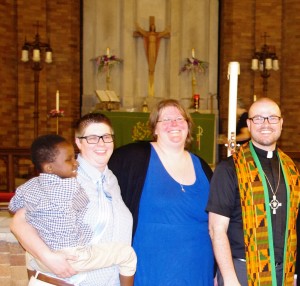
Her experience of welcoming has been twofold, an intersection of the intentional work of both a congregation and its pastor, the Rev. Erik Christensen. One way that some RIC congregations have lived out their welcome is by calling an LGBTQ pastor. “We went to several churches that were listed as being open to LGBT people and some of them were just open to it. When you went there, you were obviously the only person that was gay in the whole congregation… If you called a gay pastor, the congregation has already had to come to terms with a gay person to the point where they’re okay with being led by someone who’s gay. It moves it beyond just rhetoric.”
To Catherine, this openness is not limited to sexuality, and reflects a congregation’s willingness to grapple with other difficult faith discussions or topics that are typically pushed aside in other ministries – a message that can prove invaluable to those who have felt marginalized by church communities.
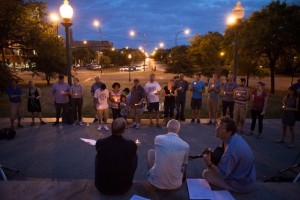
The other experience of welcoming Catherine attributes to the leadership of Pastor Erik Christensen, a man who revitalized the congregation of St. Luke’s and enabled its average weekly attendance to grow from fifteen to sixty in his tenure. While many in his congregation say that he encourages them to work for justice in the world and that he has a global sense of service to others, he has impacted Catherine specifically in a profound way. “He’s given me a new vision of what church can be. I came from such a conservative background that he’s given me a feeling that anybody, any person in the community, is welcome regardless of your past or who you are or who you’ve been. You’re all welcome to be here.”
Pastor Erik’s welcoming nature is especially poignant since he himself faced discrimination at the church door. When Erik completed his Masters of Divinity, the ELCA was not ordaining openly gay candidates. Erik was ordained extraordinarily in 2006 and was only received onto the clergy roster of the ELCA in 2010 after the ELCA began ordaining and receiving LGBTQ clergy.
But as many LGBTQ seminarians and clergy have come to understand, this denominational policy change has not shifted the day-to-day rejection or hostility they face. That is why ELM and congregations like St. Luke’s are invaluable to those receiving messages that they do not belong in church.
When Catherine decided to pursue candidacy, leaders in the church cautioned her, expressing that she may never get a job due to the fact that she was a lesbian woman with an interracial family. It was during this time that Pastor Erik was vital to her perception of the church and her call, “I really felt like the church didn’t want me. Not because of who I am but just because I’m gay. Pastor Erik has just made it obvious that there is a space for me if that’s what I want to do… I can be a part of the church and I can be a leader in the church that lives authentically to who I am and that’s enough, and he’s given that message not just to me but to every person that walks in that door. It’s something I’ve grown so much from and feel like I want to share with other people.”
Congregations connected to ELM and Proclaim clergy in turn have a unique opportunity to not only uplift seminarians throughout the call process, but to inspire them to action in the church and surrounding communities by offering voices of welcome and acceptance – voices that continue to be needed in the church today.
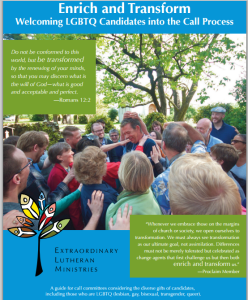 To find out more about how your congregation can be more extraordinary(!), see our resource for congregations and call committees – Enrich & Transform: Welcoming LGBTQ Candidates into the Call Process.
To find out more about how your congregation can be more extraordinary(!), see our resource for congregations and call committees – Enrich & Transform: Welcoming LGBTQ Candidates into the Call Process.



